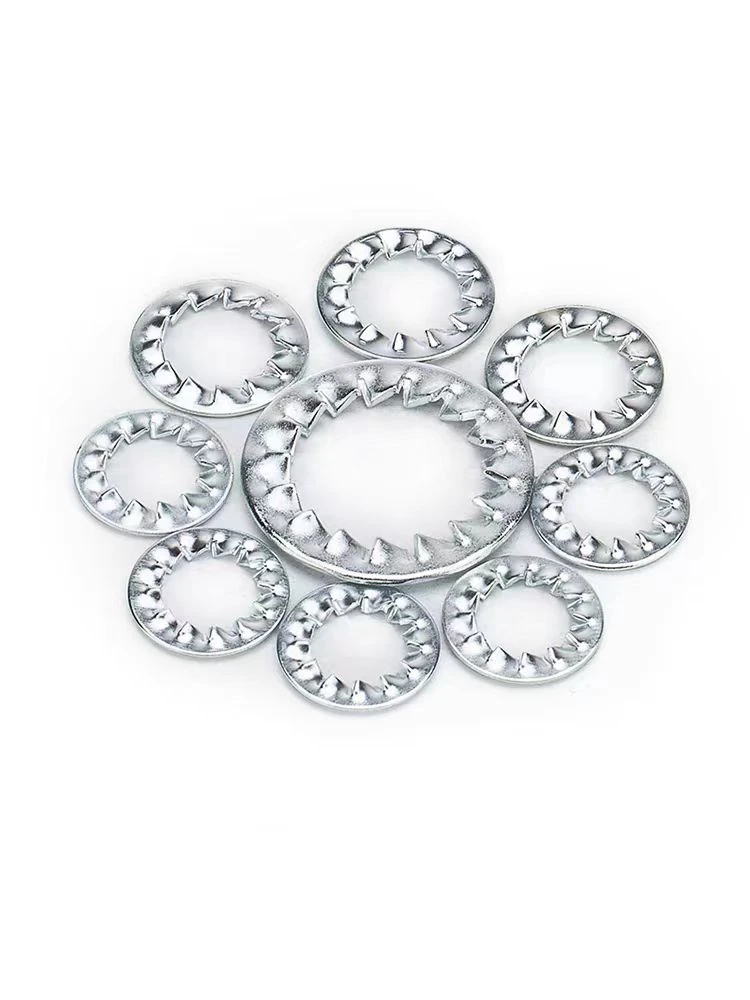

small self tapping screws for metal
Déc . 18, 2024 08:17 Back to list
small self tapping screws for metal
Understanding Small Self-Tapping Screws for Metal A Comprehensive Guide
Small self-tapping screws are essential fasteners in various metalworking applications. These versatile screws are designed to tap their own holes as they are driven into materials, making them incredibly efficient and effective for securing metal components. This article explores the characteristics, applications, advantages, and considerations related to small self-tapping screws for metal.
What Are Small Self-Tapping Screws?
Self-tapping screws are unique fasteners that can create their own thread, allowing them to securely penetrate metal surfaces without the need for a pre-drilled hole. They come in various sizes, materials, and head styles, catering to specific requirements of different projects. Small self-tapping screws, typically ranging from No. 2 to No. 8 in size, are particularly useful in applications where precision and a strong hold are necessary.
Characteristics of Small Self-Tapping Screws
1. Material Small self-tapping screws are commonly made from steel, stainless steel, or zinc-plated steel to enhance durability and resistance to corrosion. The choice of material depends on the application environment. Stainless steel screws, for example, are ideal for outdoor or corrosive environments.
2. Thread Design The thread design is critical for effective performance. Self-tapping screws usually feature sharp, pointed ends that help penetrate the metal easily. The thread pitch may vary to provide better holding power or to suit specific materials.
3. Head Styles Small self-tapping screws come in various head styles, including pan, flat, hex, and round. The choice of head style affects both aesthetics and functionality; for example, a pan head allows for a larger surface area, which can distribute pressure more evenly.
4. Drive Types Different drive types, such as Phillips, slotted, or Torx, offer varied levels of torque and stripping resistance. The choice of drive type can influence how easily the screw can be installed or removed.
Applications of Small Self-Tapping Screws
Small self-tapping screws are widely used across various industries, including
1. Automotive In the automotive industry, these screws are used to attach components such as brackets, panels, and interior fixtures. Their ability to create strong, vibration-resistant joints is crucial in automotive applications.
2. Electronics In electronics manufacturing, small self-tapping screws are essential for securing casings, circuit boards, and other components. Their precision ensures that electronic devices are built to exact specifications.
small self tapping screws for metal

4. Construction and Repair These screws are ideal for light construction projects and repairs, particularly in metal structures. Whether it’s fastening metal siding or securing structural components, they provide a reliable solution.
Advantages of Using Small Self-Tapping Screws
1. Efficiency The primary advantage of self-tapping screws is their ability to eliminate the need for pre-drilling, significantly speeding up the assembly process.
2. Strong Holding Power Due to their design, small self-tapping screws create tight, secure connections that withstand stress and vibrations, making them ideal for dynamic environments.
3. Cost-Effective Using these screws can lower labor costs and improve productivity, making them a cost-effective choice for both manufacturing and construction.
4. Easy Installation They can be quickly installed using a standard power tool, allowing for flexibility and convenience in various applications.
Considerations When Using Small Self-Tapping Screws
While small self-tapping screws offer numerous benefits, there are a few considerations to keep in mind
1. Material Compatibility Ensure the screw material is compatible with the base metal to prevent corrosion and ensure a strong connection.
2. Installation Torque Use the appropriate torque settings to avoid over-tightening, which can strip the threads or damage the material.
3. Thread Engagement Proper thread engagement is crucial for optimal performance. Ensure that the screw is driven to the correct depth to achieve the best hold.
Conclusion
Small self-tapping screws are integral to various metalworking applications, providing efficiency, strength, and reliability. Understanding their characteristics, applications, and the advantages they offer can enhance project outcomes in various industries. Whether in automotive, electronics, HVAC, or construction, the proper use of these screws can lead to excellent results in metal fastening and assembly applications. By selecting the right type and adhering to best practices in installation, users can maximize the benefits of these versatile fasteners.
Latest news
-
High-Strength Hexagon Nuts: Secure & Reliable Fastening Solutions
NewsAug.27,2025
-
Full Thread Studs: Max Strength & Secure Fastening Solutions
NewsAug.26,2025
-
Secure Threaded Fasteners: Steel, Titanium, Wall, Wood Solutions
NewsAug.21,2025
-
Durable Brass Fasteners: Quality Solutions for Every Project
NewsAug.19,2025
-
High-Strength Hot Dip Galvanized Bolts - Hebei Longze Metal Products Manufacturing Co., Ltd.|Corrosion Resistance, Customizable Sizes
NewsAug.18,2025
-
Hot Dip Galvanized Bolts - LongZe | Corrosion Resistance, High Strength
NewsAug.18,2025

